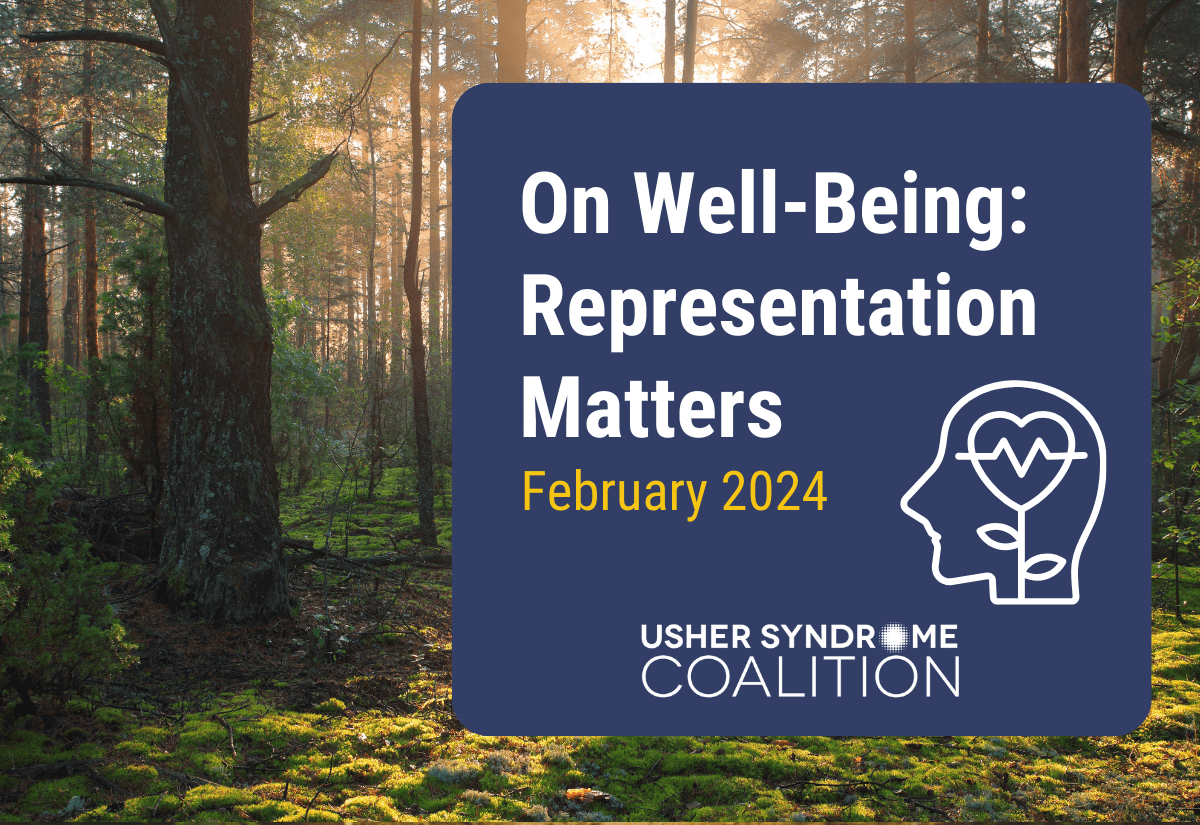
For better or worse, the media can profoundly influence our views on disability, our beliefs about ideals and cultural norms, and our sense of self. Stereotypes of disabilities, like deafblindness, are often perpetuated by the media, stemming from the viewpoint of the dominant majority: typical able-bodied individuals. When the average person doesn’t interact with individuals with disabilities, their perception is shaped through limited, and often inaccurate, depictions of disabilities in the media.
This is why representation matters. Accurate and authentic representation of people with disabilities - BY people with disabilities - has the power to dissolve harmful stigma and negative stereotypes.
Disability representation is becoming more prevalent in the media. This includes the representation of Usher syndrome! One example is the children’s television show, “Mixmups,” which features a character with a white cane and a guide dog. Rebecca Atkinson is the writer and creator of “Mixmups.” Rebecca has Usher syndrome and lives in the UK.
Dr. Jasmine Simmons, an audiologist living with Usher syndrome, also recently published a new children’s book, "Extraordinary Jordyn and her Bionic Ears,” the very first installment of an Usher syndrome series.
Deaf and blind representation in the media is improving in film and TV, with examples including, but not limited to, a deaf superhero in Marvel’s limited television series, “Echo,” blind actors portraying the novel’s protagonists in the television adaptation of “All the Light We Couldn’t See,” and HBO’s post-apocalyptic “The Last of Us,” featuring young Keivonn Woodard, the first Black deaf actor to be nominated for an Emmy award.
While progress is being made, there is still room for improvement. As more deaf, blind and DeafBlind people share their stories and experiences, stereotypes can continue to be dismantled. The use of braille, screen readers, and navigating the environment with a dual sensory loss are all things that can be introduced through media.
We all want to feel seen, while also seeing ourselves and our world portrayed in a multi-dimensional, authentic way. Representation matters.







